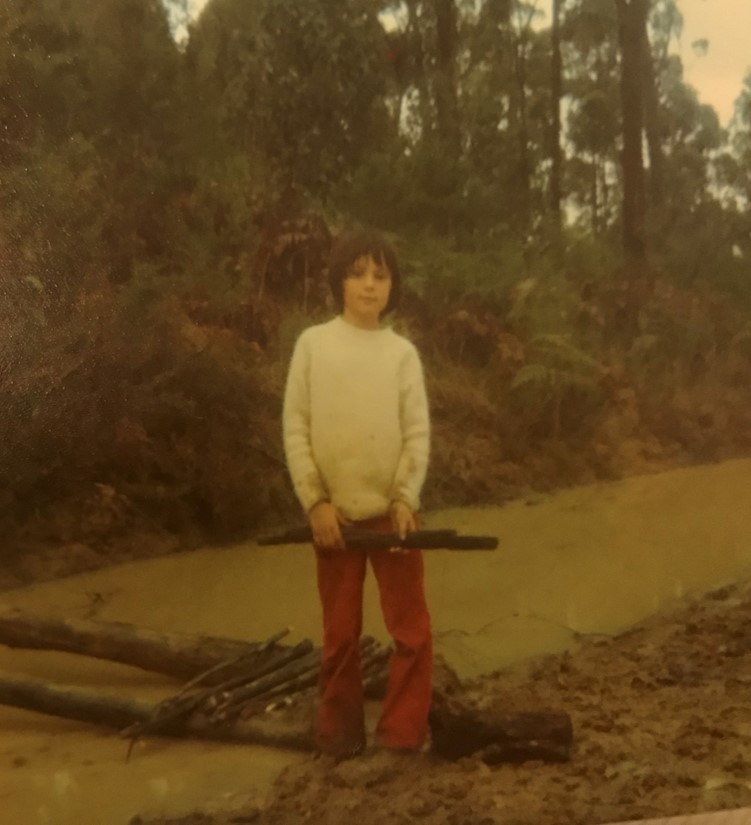Questioning consumerism
By James Whitmore
How Dr Michal Carrington’s unique childhood and former career as a marketing executive inspired her research of the modern world’s most tricky problems.

Michal Carrington grew up off the grid. Really off the grid.
“Once a week my dad would start the generator and my mum would do a load of washing because she refused to hand wash.”
This was before the days of solar panels. They had second-hand clothes, candles and kerosene lamps for light, and wood for heating.
“We had a car battery. My dad would sell produce to purchase petrol and we would hook our television on a Saturday night up to the car battery. And we would watch television for two hours.”
Dr Carrington, now a Senior Lecturer in the Faculty’s Department of Management and Marketing, attributes her interest in ethical consumption to her alternative upbringing.
“When you grow up in that sort of environment, it makes you aware of the consequences of consumption because no one is going to get rid of your waste for you, you have to get rid of your waste yourself. No one is going to cover up any part of the production or consumption chain.”
A key theme of Dr Carrington’s research is modern slavery, specifically how consumers deal with it. While slavery was state-sanctioned in the past, modern slaves are often bound by economic and psychological chains. This slavery is often hidden, but Dr Carrington says it is ubiquitous – in fast-fashion, food, and technology.
“There are very few products that we consume on a daily basis that wouldn’t have some level of slavery to them.”
She has found that consumers often struggle to see that adult slaves do not choose to be in their situation.
“People tend to actually feel more empathy, as consumers, towards animals and children than they do adult slaves.”
Everyone is responsible for ending slavery – producers, government, and consumers – but that there are definitely things consumers can do, she says.
“Ask yourself, do you need five of the same coloured t-shirts sitting in your wardrobe or could you just buy one and make sure it's from a company that has ethical considerations right through their supply chain?”
Dr Carrington began her career as a mechanical engineer, before moving into marketing for ten years with consumer goods company Unilever.
“There's no better way to understand how business works than from the inside. And working for a massive multinational also gives you incredible amount of skills and capabilities.”
Her decision to pursue a research career grew out of her work for the company.
“I was doing a whole series of group interviews with Unilever with middle aged women in suburbia, who were frustrated because they couldn't find the ethical products they wanted, whether it was tea, coffee, or tinned tomatoes. And I thought, hey, this is really interesting.”

One of Dr Carrington’s first jobs in engineering was managing a team of male maintenance workers.
“I was the only female out on site. Within a week of coming in there was almost a riot because they didn't want me in their lunchroom. I asked them to take down their calendars with nude women all around the workshop. That was just absolutely unheard of. ”
Dr Carrington says making the change to academia from industry was refreshing.
“There are still gender gaps in academia, but I think people are more conscious of them, there's far more discussion. I find that there's more respect for women in general.”
Banner image: Factory from Shutterstock